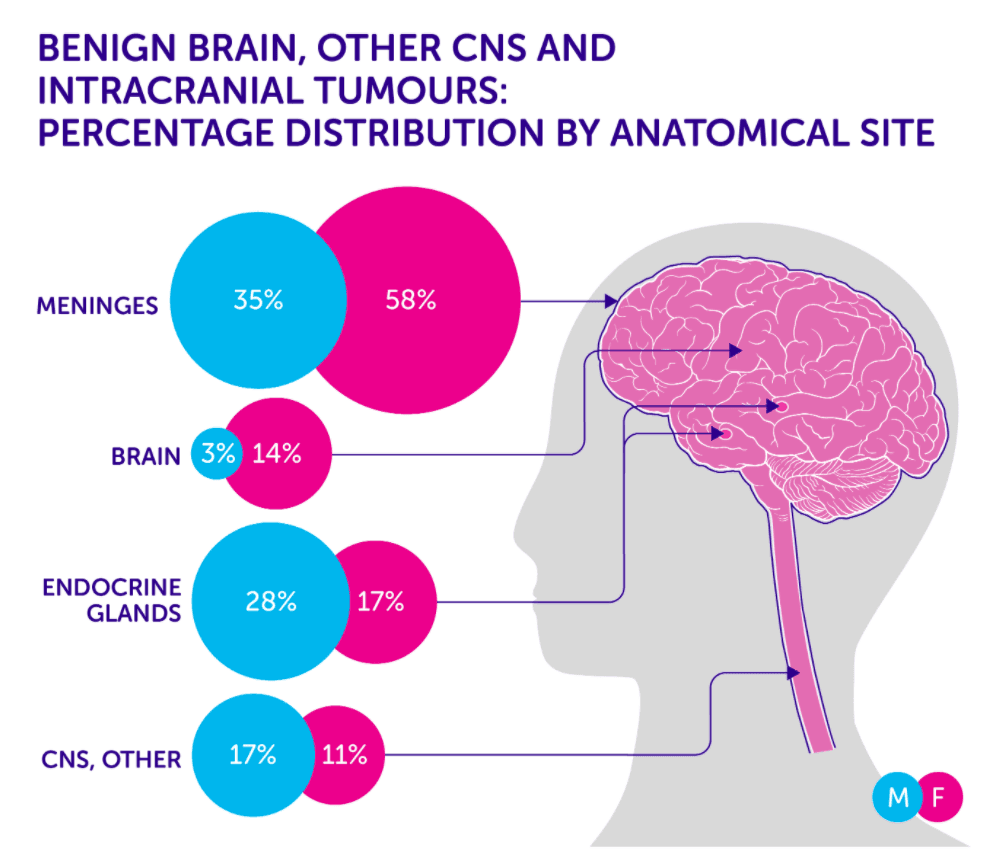 100% No Win No Fee
100% No Win No Fee
Award winning experts in medical negligence
To start your free case evaluation or to simply discuss
your options fill in our quick and easy form. A Devonshires Claims’ medical negligence lawyer will be in touch within 24 hours to help with your next steps.
* This data will be used by Devonshires Claims for processing your query and for no other purpose.
Every year nearly 11,000 people in the UK are diagnosed with a brain tumour, of which half are cancerous.
Statistics published by Cancer Research UK reveal a 39% increase in the incidence of brain cancer since 1990.
For most cancers early diagnosis could significantly affect recovery from the disease. A delay in diagnosing a brain tumour could result in an increase in the tumour, the spread of the cancer to other organs and necessitate more intensive or invasive treatment. It could also affect your long-term health and survival.

If you or a loved one has suffered due to the misdiagnosis of a brain tumour, you may be entitled to claim compensation. At Devonshires Claims, our experienced medical negligence solicitors can help you obtain justice and compensation.
Every year nearly 11,000 people in the UK are diagnosed with a brain tumour, of which half are cancerous. Statistics published by Cancer Research UK reveal a 39% increase in the incidence of brain cancer since 1990.
For most cancers early diagnosis could significantly affect recovery from the disease. A delay in diagnosing a brain tumour could result in an increase in the tumour, the spread of the cancer to other organs and necessitate more intensive or invasive treatment. It could also affect your long-term health and survival. If your brain tumour was misdiagnosed or diagnosed late by your GP, consultant, radiologist or other health care professional you could be entitled to make a medical negligence claim.
Can I Make A Brain Tumour Misdiagnosis Claim?
To bring a successful compensation claim for medical negligence, it must be shown that the care you received fell below an acceptable standard and, as a consequence, you have suffered an avoidable injury.
Brain tumour misdiagnosis claims may be brought against a GP, consultant, radiologist, hospital or other healthcare provider for:
- The failure of a GP to refer a patient to a specialist or for further tests when the patient presents with potential brain tumour symptoms
- The failure of a GP, consultant, radiologist to to take further action/investigation on suspicious or abnormal findings.
- Mistakes made in interpreting results i.e. Misinterpretation of tests designed to help in the detection of cancer including radiology scans or blood tests.
- Misdiagnosing a brain tumour as another condition, resulting in the patient receiving the wrong or unnecessary treatment
- Any other situation in which the medical care received may have been below acceptable standards during the diagnosis and treatment of brain cancer
The failure to investigate potential symptoms of brain cancer and the subsequent delay in treatment, could contribute to the progression of the cancer to a more advanced stage and affect the likelihood of survival.
The misdiagnosis compensation could provide for:
- Specialist private surgery or treatment to recover from brain cancer and the consequences of the cancer
- Necessary care and assistance
- Rehabilitation or home adaptations
- Loss of earnings
- Expenses (e.g. travel costs)
Contact Our Cancer Misdiagnosis Solicitors Today
Early diagnosis and treatment of a brain tumour are crucial to prevent the spread of the disease and improve the chances of making a full recovery. If you experienced negligent medical care associated with the late diagnosis of your brain tumour, you could be entitled to compensation.
Devonshires Claims’ experienced solicitors support victims of medical negligence to make brain cancer misdiagnosis compensation claims on a No Win No Fee basis.
For more information on making a cancer misdiagnosis claim or to start your free case evaluation, contact our experts on 0333 900 8787, email [email protected] or complete our online contact form.
Brain Tumour Misdiagnosis FAQs
The NHS has provided a definition of the condition and types of brain tumours:
A brain tumour is a growth of cells that multiply in the brain in an abnormal and uncontrollable way.
Brain tumours are graded according to how fast they grow and how likely they are to grow back after treatment.
Grade 1 and 2 tumours are low grade, and grade 3 and 4 tumours are high grade.
There are 2 main types of brain tumours:
- non-cancerous (benign) brain tumours – these are low grade (grade 1 or 2), which means they grow slowly and are less likely to return after treatment
- cancerous (malignant) brain tumours – these are high grade (grade 3 or 4) and either start in the brain (primary tumours) or spread into the brain from elsewhere (secondary tumours); they’re more likely to grow back after treatment
Source: https://www.nhs.uk/conditions/brain-tumours/
A malignant or cancerous brain tumour is more dangerous as it can spread throughout the brain and to other parts of the central nervous system (CNS) such as the spine.
Benign brain tumours, are non-cancerous tumours that tend not to spread. Examples include:
- Gliomas (tumours of the glial tissue)
- Acoustic neuromas (tumours of the acoustic nerve)
- Meningiomas (tumours of the membranes surrounding the brain)
Although not as destructive as a malignant brain tumour, a benign brain tumour can still affect brain function.
The treatment of a brain tumour will depend on the type of tumour and its location in the brain.
Treatment often involves:
- Surgery
- Radiotherapy
- chemotherapy
Risk Factors Associated With a Brain Tumour
The risks factors associated with a brain tumour are:
- Age: The risk of brain tumours is greatest in those aged between 85 and 89 years.
- Obesity
- Exposure to Medical radiation (ionising radiation)- Ionising radiation is a type of radiation used by some medical scans, such as x-rays and CT scans. The risk of developing cancer from exposure to ionising radiation is generally quite low.
- Family history – Your risk is higher than other people in the general population if you have a close relative who has had a brain tumour.
- Genetic conditions – People who have one of these rare syndromes have an increased risk of getting a brain tumour.
These syndromes include:
- Neurofibromatosis (NF) type 1 and type 2
- Tuberous sclerosis (TSC)
- Li-Fraumeni syndrome
- Von Hippel-Lindau syndrome (VHL)
- Turner syndrome
- Turcot syndrome
- Gorlin syndrome
Source: https://www.cancerresearchuk.org/about-cancer/brain-tumours/risks-causes
Because some of the symptoms of a brain tumour are often vague or non-specific (especially in the early stages), the condition can be overlooked and misdiagnosed as:
- Depression
- Stress related
- Age related
This could result in a serious delay in referring a patient to a consultant and for scans such as MRI or blood tests.
Symptoms of a brain tumour
Common symptoms of a brain tumour include:
- headaches
- Vertigo
- Vomiting, nausea and drowsiness
- Stress
- Epileptic fits, seizures or twitching
- Severe and persistent headaches
- Poor eyesight, hallucinations, and dizziness
- Cognitive impairments such as apathy and memory problems
- Loss of core functions such as swallowing
If a brain tumour is suspected it is important to see a GP as soon as possible. The GP should assess the patient and refer them to a specialist / consultant who will:
- Carry out further tests relating to hearing, vision, balance and coordination and metal agility
- Follow up with advanced scans such as CT (computerised tomography), MRI (magnetic resonance imaging) and EEG (electroencephalogram).
- Carry out a biopsy if a tumour is found in order to establish the type of brain tumour and the correct treatment options.
Early diagnosis of brain cancer increases the chances of recovery. To claim medical negligence, one would need to prove that the delay in diagnosing the brain cancer adversely affected your health outcome.
To make a compensation claim for brain tumour misdiagnosis, speak to one of our medical negligence compensation solicitors today. Our team will assess whether the duty of care owed to you was breached, and whether this was the cause of your injuries.
The ‘limitation’ period to bring a claim for medical negligence is generally three years from the date of negligence or the date of reasonable knowledge of the injury. This means that if you became aware of the failure to diagnose cancer weeks, months, or even years later, the three-year period could commence from then. In rare circumstances, the Court may use its discretion to extend the limitation period, but only for exceptional reasons, so it is important to contact us as soon as possible. The sooner you contact us, the sooner we can begin our investigations and the sooner we can start to assist with your treatment and recovery.
Absolutely!; Devonshires Claims can provide a ‘No Win No Fee’ claims service for brain cancer misdiagnosis compensation claims
Under a No Win No Fee’ arrangement, which is also known as a ‘Conditional Fee Agreement’ , you will not be charged any costs if your case is not successful*.
If your brain tumour was diagnosed late or misdiagnosed your compensation payout could provide for your:
- Specialist medical treatment on a private basis
- Rehabilitation and physiotherapy
- Medical aids and home adaptations
- Financial support for the loss of earnings, including future earnings such as pension payments
- Financial support for the recovery of expenses eg. travel
- Specialist care and support
The compensation payout for cancer misdiagnosis can only be determined once we understand the full impact of disease and the delay in diagnosis on your life and wellbeing.
Brain Cancer Statistics in the UK
Brain tumour statistics in the UK Between 2015 – 2017
| New Cases | Proportion of all cases
|
Age | |
| Brain tumour
|
12, 071 | 3%
Percentage brain tumour is of total cancer cases, 2015-2017, UK |
85 – 89
Peak rate of brain tumour cases, 2015-2017, UK |
Projected Incidence
Brain tumours incidence rates are projected to rise by 6% in the UK between 2014 and 2035, to 22 cases per 100,000 people by 2035. This includes a smaller increase for males than for females.

Location of the tumour
Most malignant brain, other CNS and intracranial tumours occur in the brain, with much smaller proportions in the meninges, endocrine glands and other parts of the CNS (2010-2012)


Brain Cancer Statistics Worldwide
Worldwide, cancer of the brain and central nervous system was the 17th most common cancer diagnosed in 2018.
| nk | Cancer | New cases diagnosed in 2018 | % of all cancers (excl. non-melanoma skin cancer) |
| All cancers* | 17,036,901 | ||
| 1 | Lung | 2,093,876 | 12.3 |
| 2 | Breast | 2,088,849 | 12.3 |
| 3 | Colorectal** | 1,800,977 | 10.6 |
| 4 | Prostate | 1,276,106 | 7.5 |
| 5 | Stomach | 1,033,701 | 6.1 |
| 6 | Liver | 841,080 | 5.0 |
| 7 | Oesophagus | 572,034 | 3.4 |
| 8 | Cervix uteri | 569,847 | 3.3 |
| 9 | Thyroid | 567,233 | 3.3 |
| 10 | Bladder | 549,393 | 3.2 |
| 11 | Non-Hodgkin lymphoma | 509,590 | 3.0 |
| 12 | Pancreas | 458,918 | 2.7 |
| 13 | Leukaemia | 437,033 | 2.6 |
| 14 | Kidney | 403,262 | 2.4 |
| 15 | Corpus uteri | 382,069 | 2.2 |
| 16 | Lip, oral cavity | 354,864 | 2.1 |
| 17 | Brain, central nervous system | 296,851 | 1.7 |
| 18 | Ovary | 295,414 | 1.7 |
| 19 | Melanoma of skin | 287,723 | 1.7 |
| 20 | Gallbladder | 219,420 | 1.3 |
Source; https://www.wcrf.org/dietandcancer/cancer-trends/worldwide-cancer-data
How to make a compensation claim for the late diagnosis or misdiagnosis of a brain tumour
If you feel that your GP, consultant, radiologist or other healthcare provider was negligent and responsible for the late diagnosis or misdiagnosis of your brain tumour, you may be entitled to make a compensation claim.
At Devonshires Claims our highly experienced cancer misdiagnosis solicitors have helped patients throughout the UK obtain compensation which reflected the negligence and provided financial support for medical treatment, specialist care and aids and loss of earnings. For more information or to start your free case evaluation, contact our experts today 0333 900 8787, email [email protected] or complete our online form.


